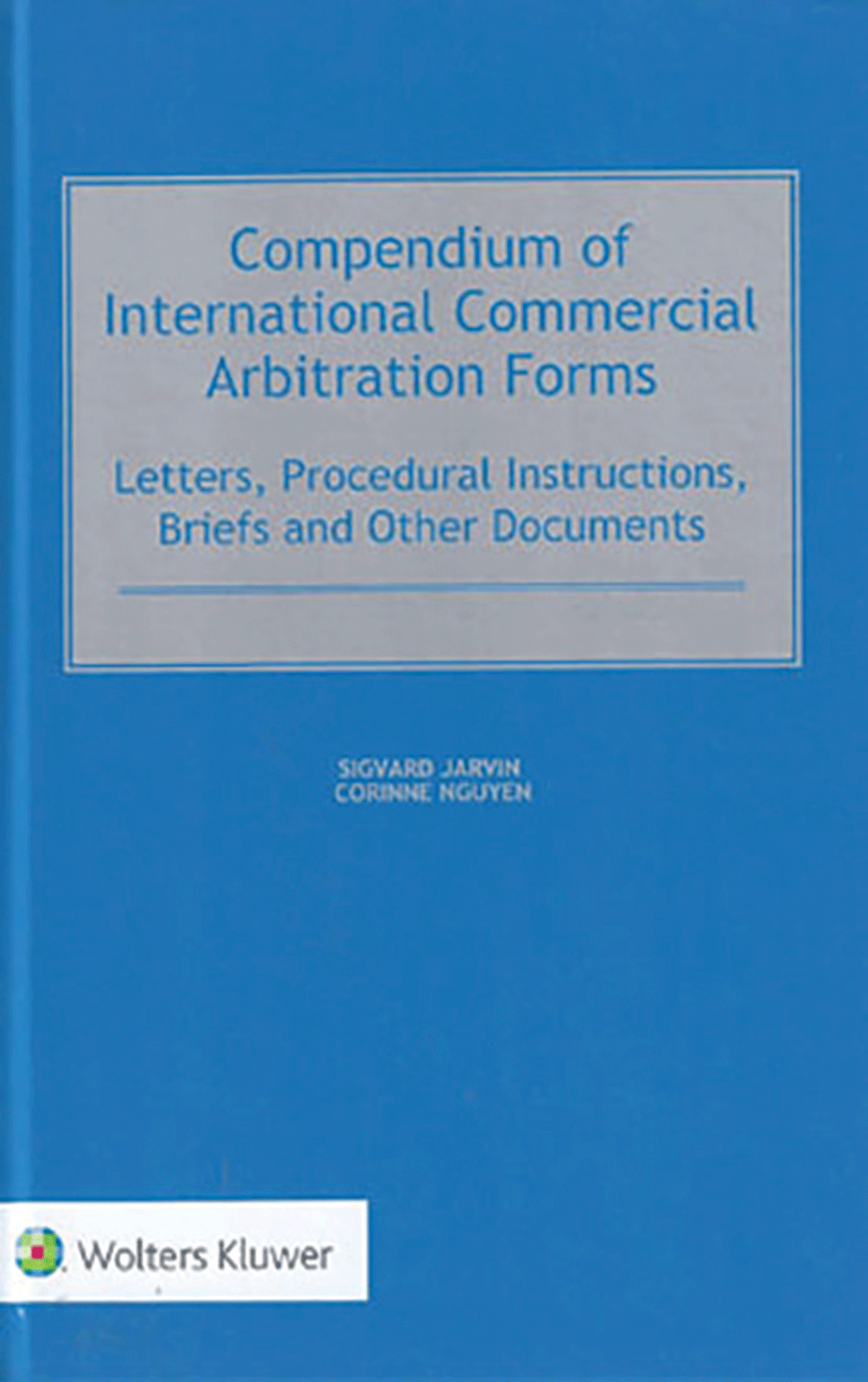
“The Compendium is an immensely useful book that can be recommended both to the beginner and to the seasoned practitioner”
Authors: Sigvard Jarvin & Corinne Nguyen
Publisher: Wolters Kluwer
ISBN: 978-90-411-8587-7
Pages: 612
Price: £159
The authors describe their book as a ‘collection of examples of documents (or “forms”) which are used in international commercial arbitration, both institutional and ad hoc’.
A collection of real examples
The six chapters of the Compendium cover the early stages of an arbitration; the organisation of the proceedings; written pleadings; the hearing; post-hearing activities; and the final stages.
The chapters set out the authors’ introductory comments on various aspects of the six stages. The comments are followed by the ‘forms’. For example, the introductory comments in chapter 1 stress that the Request for Arbitration is an important document since the arbitral tribunal ‘gains its first impression of the case from this initial submission’ . There then follow three forms giving examples of requests for arbitration









